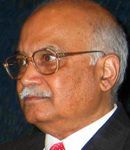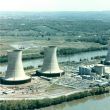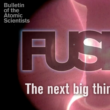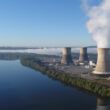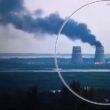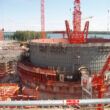Assurances, but no sense of assurance
By Ramamurti Rajaraman, October 18, 2012
The participants in this Roundtable have identified a number of concerns about the way that fuel banks for low-enriched uranium (LEU) will work in practice. Prominent in my colleagues' first-round essays was the belief that developing countries that depend on fuel banks for emergency supplies of low-enriched uranium would be forced to forgo their right under the Nuclear Non-Proliferation Treaty (NPT) to establish indigenous enrichment and reprocessing facilities. In their second-round essays, my colleagues acknowledged that the International Atomic Energy Agency (IAEA) provides explicit assurances that fuel-bank initiatives are not to diminish nations' rights in the nuclear fuel cycle.
But also worth noting, I believe, is an agency assurance regarding the IAEA LEU bank — the multilateral facility for low-enriched uranium that seems likely to be located in Kazakhstan — that the availability of fuel will not be influenced by the geopolitical relationship between customer states and the state on whose soil the fuel bank is located. "The host state," says the agency, "shall grant the agency the right to transport LEU to and from the IAEA LEU bank as determined by the agency." This should reduce concerns that political tensions between a customer state and other parties might interfere with the customer's ability to purchase low-enriched uranium.
One would think that assurances as explicit as these would put to rest most fears of potential customer nations. Indeed, I would welcome suggestions as to what more the IAEA might do to strengthen its assurances. But such is the level of mistrust prevailing between the developed and developing worlds that even signed and sealed documents are not considered sacrosanct. This is to some extent understandable. As Ta Minh Tuan has pointed out, the Nuclear Suppliers Group recently revised its guidelines on technology related to enrichment and reprocessing. And in a somewhat similar vein, the United States in 2002 withdrew from the Anti-Ballistic Missile Treaty.
Meanwhile, Khaled Toukan has posed a very logical question that deserves an honest answer: Why have the United States and other developed nations gone to the trouble and expense of helping to establish fuel banks if not to stop the spread of enrichment and reprocessing technology? The charitable explanation — that fuel banks have been established to help nations develop their nuclear energy sectors — might have seemed valid in the days of "Atoms for Peace." But the world today has no space for nuclear altruism. Nor does a country such as the United States have as strong a commercial motivation to promote nuclear energy as it did when it was the world's dominant builder of reactors. Today, the United States competes with a number of other nations in exporting reactors.
Therefore, it seems best to admit that nuclear nonproliferation is the primary motivation for promoting fuel banks. But does that necessarily make fuel-bank schemes dubious or ineffective? True, nonproliferation has taken on a bad odor among many developing nations because they feel that the recognized nuclear weapon states have concentrated more effort on preventing nations from acquiring weapons than on fulfilling their own obligations under the NPT to disarm. Still, in an age of potential nuclear terrorism, does any nation favor proliferation (except perhaps proliferation that it carries out itself)?
The principle behind nonproliferation may be asymmetric and unfair, but this unfairness should not be used as an ideological instrument that allows fuel banks to be opposed in toto. A number of developing nations are starved for energy; lack the financial or technological wherewithal to build a full fuel-cycle infrastructure; and also have no intention of developing nuclear weapons. Why should these nations not benefit from fuel banks? Meanwhile, the countries that place little trust in the IAEA's assurances can wait to see how the fuel-bank schemes work out.
Topics: Nuclear Energy
Share: [addthis tool="addthis_inline_share_toolbox"]
